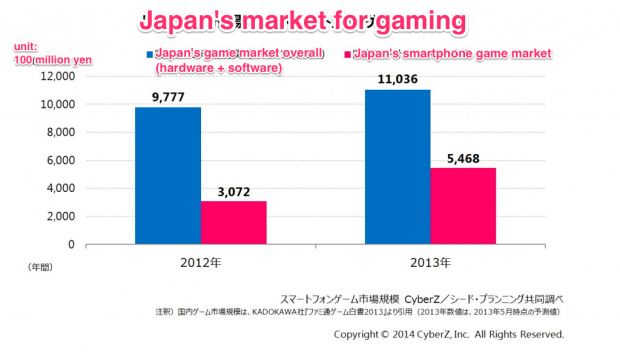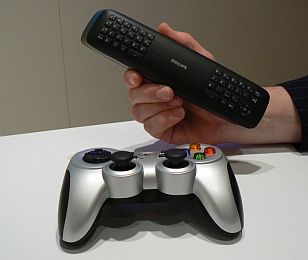It used to be the magic of Hollywood special effects that transported actors like Wil Wheaton to other lands when they entered the holodeck in Star Trek: The Next Generation. But video game technology is catching up to science fiction. Wheaton, who’s a big video game — and tabletop game — fan, talks about the near future of holodecks in your home and explains why he’s not a fan of Oculus Rift’s decision to join Facebook in this exclusive [a]list daily interview.
The big theme at the Game Developers Conference was virtual reality. One company even touted a holodeck for your home. Having worked on Star Trek: The Next Generation, what are your thoughts on yet another science fiction technology becoming a reality?
It’s something that everyone has wanted as far back as the Golden Age of science fiction in the early 20th Century — the opportunity to immerse ourselves in a virtual world that brings our imagination quite literally to life. It doesn’t surprise me at all that as computing power has increased and hardware costs have decreased, that more and more people have gone to develop those things and make those dreams a reality. I’m not surprised that there are comparisons to the holodeck. Star Trek is very forward-thinking and has actually inspired a ton of technology from the MRI to the flip phone, so those comparisons are really natural. Even though I didn’t have anything to do with creating the holodeck that’s part of the Star Trek canon, it’s pretty cool to know that this imagined thing is potentially finding its way into reality.
What impact do you feel Facebook’s acquisition of Oculus Rift will have on the future of VR?
For what it’s worth, I’m super disappointed that Oculus sold to Facebook. I really liked that the Oculus devs were making on a passion project and they were making something that a lot of people were really excited about and really believed in and the opportunity for them was limitless. The reality is Facebook is not that. Facebook is not a bunch of passionate idealists working to create something really great. Facebook’s an advertising and data mining company. It’s looking more and more like this was a defensive acquisition, which is a super bummer. But maybe we could all be proved wrong. Maybe Facebook’s going to completely get out of the way and let these guys do what they were already doing, and just let them be independent developers under that big Facebook umbrella. But if you look at all of Facebook’s acquisitions and the things that they’ve done, that probably isn’t the way it’s going to go.
When you look at Sony’s Project Morpheus and the Virtuix Omni and what Seebright and Sulon Technologies are doing with virtual reality, it looks like we’re getting closer to the Oasis from the book, Ready Player One, which you did the audio book reading for.

It’s not a question of if, it’s a question of when something like the Oasis is real. You have seen people working really hard to build virtual worlds like Second Life and all of the dozens that have come and gone over the last decade or so. When you can put people in them, it creates a really fantastic opportunity to have an entire new world exist. It’s going to be great for people with disabilities and it’s going to be really wonderful for creating an environment where people can really feel like they are together, regardless of where they are in the physical world. It’s going to be fun to go in there and participate in a version of Tabletop gaming, but maybe we’re actually dropping ourselves into virtual power armor and becoming Space Marines or we’re playing Battle Lore and we’re becoming spellcasters and actually seeing those things that have really only existed in our imagination, existing in a way that feels much more real. For so long, so much of science fiction has been dystopian, and with good reason, but I do think it is cool that there is the possibility for a world to exist — even if it’s only virtual — where there’s these limitless opportunities for all kinds of people.
At the same time, as more and more people broadcast on YouTube, it becomes more challenging to find content through that. What role has your success in Star Trek and The Big Bang Theory played in finding an audience out there for TableTop?
I’m not really sure what the correlation is between the work I do on big mainstream programs like Big Bang Theory and the audience that comes to TableTop. Even before I was doing this recurring role on Big Bang Theory people were really coming to see the things that we did on Geek & Sundry. Those audiences kind of parallel each other and occasionally overlap. Maybe somebody sees me on Big Bang Theory or they see me on Leverage or Eureka and then look me up on the Internet and see links to my blog and TableTop stuff, but that’s honestly not something I spend a lot of time thinking about.
How easy is it to get celebrities to come and play board games with you?
We have some unique challenges. We’re a little show and for the number of episodes we make and the quality of our production we’re actually a pretty low budget show. So we have a lot of shooting constraints. Primarily, we shoot 10 episodes in five days and because of that we have to build this really complicated logic puzzle, where we match up players with games that are appropriate to their experience level and then we have to get three players for that game plus me. Then we have to figure out a time when all three of those players can play, whether they’re going to be in the morning episode or the afternoon episode. And then we have to be prepared for them to be maybe they have to drop out at the last minute because an acting job comes up. But even with all of those constraints and all of those challenges, it has always been pretty easy to get people to come and play on the show. They think it’s a really cool idea.


